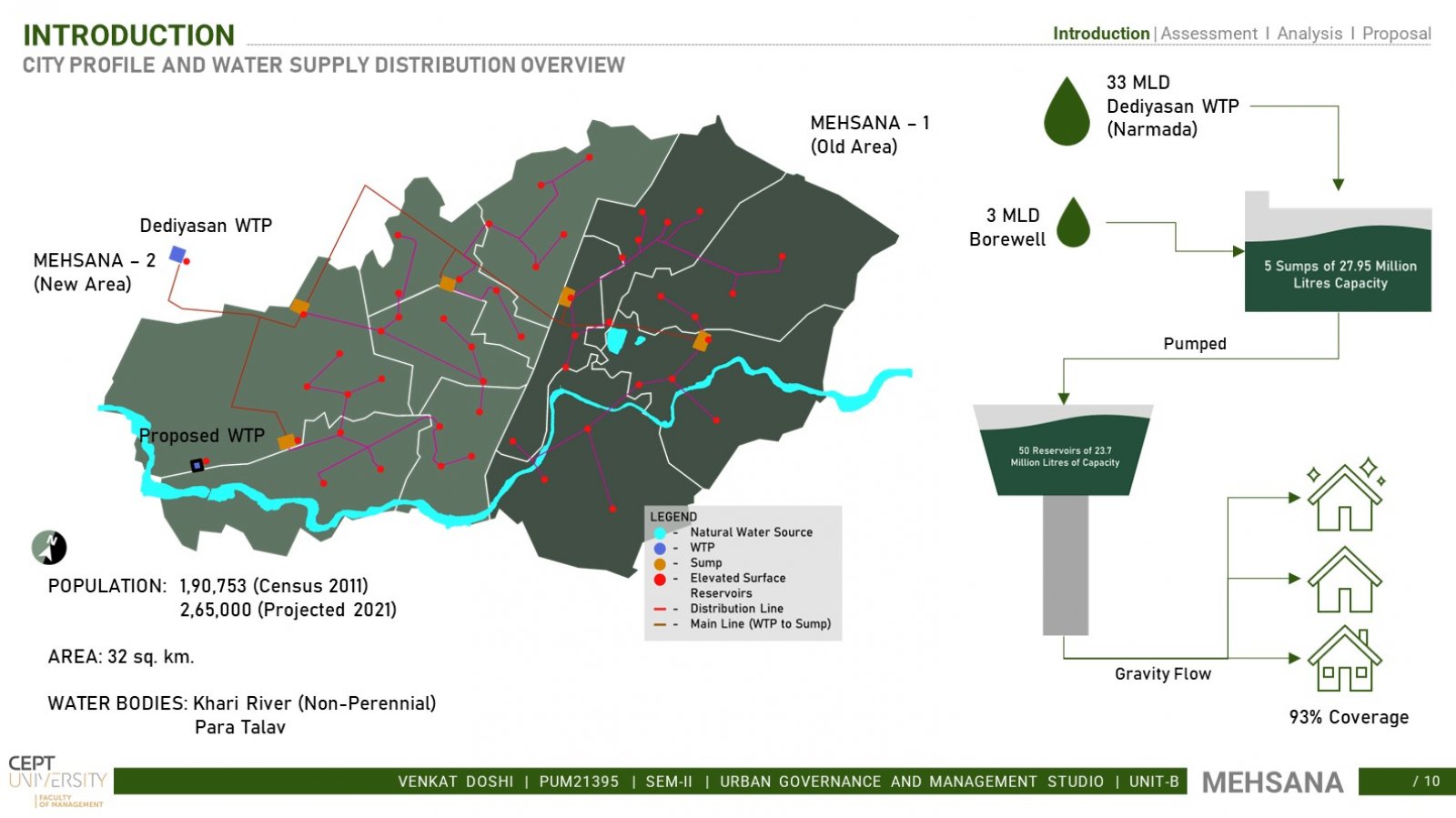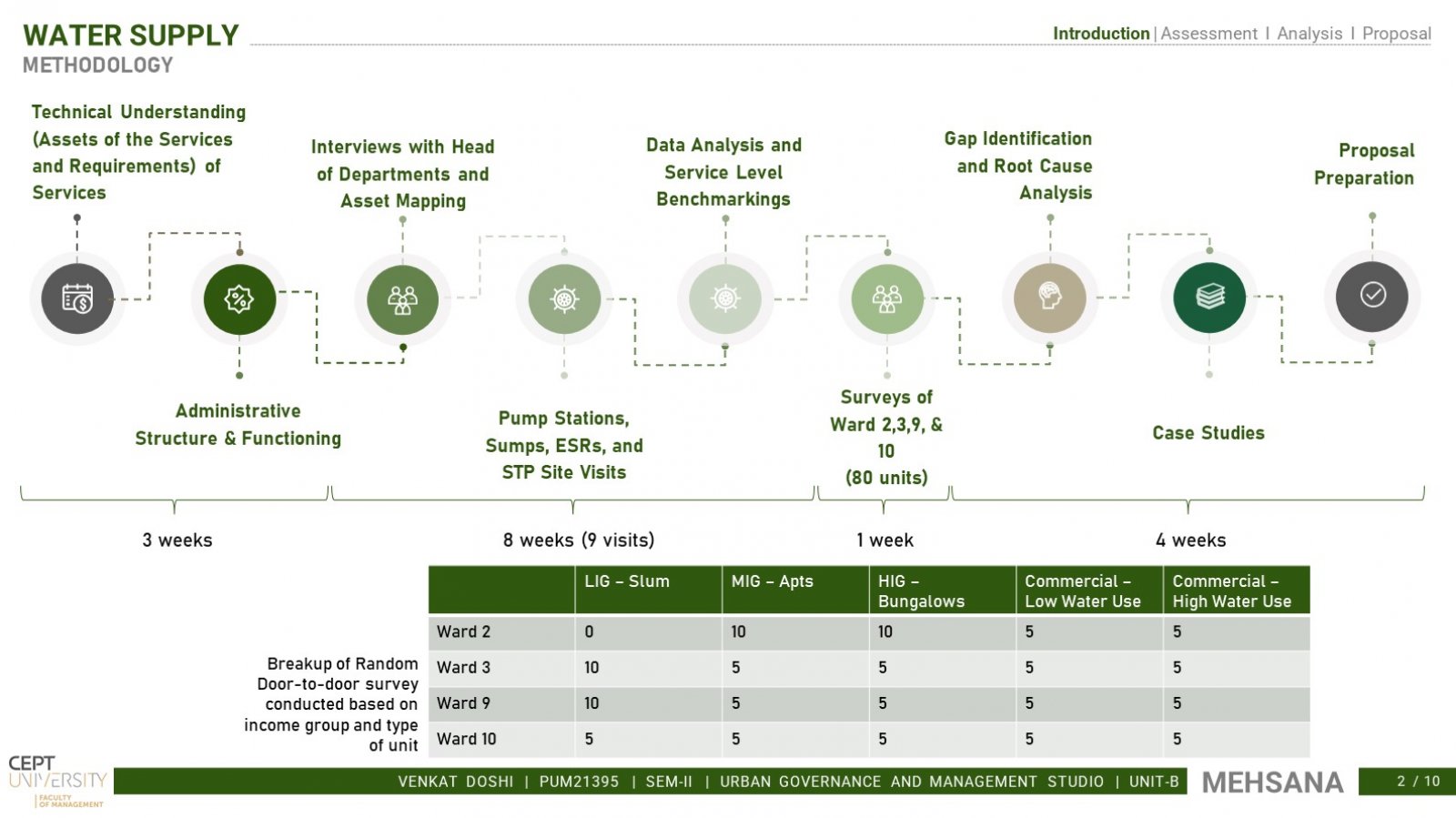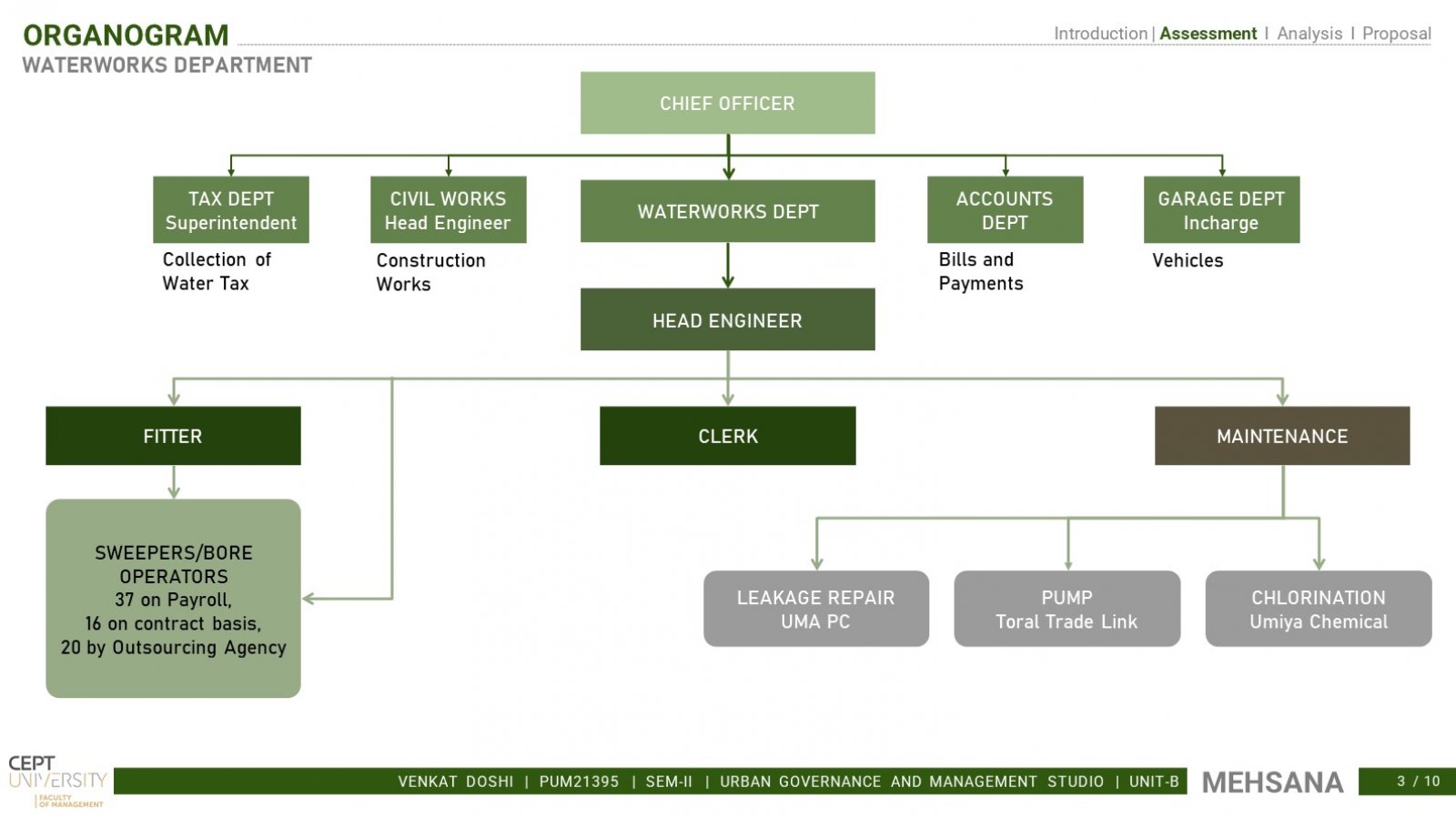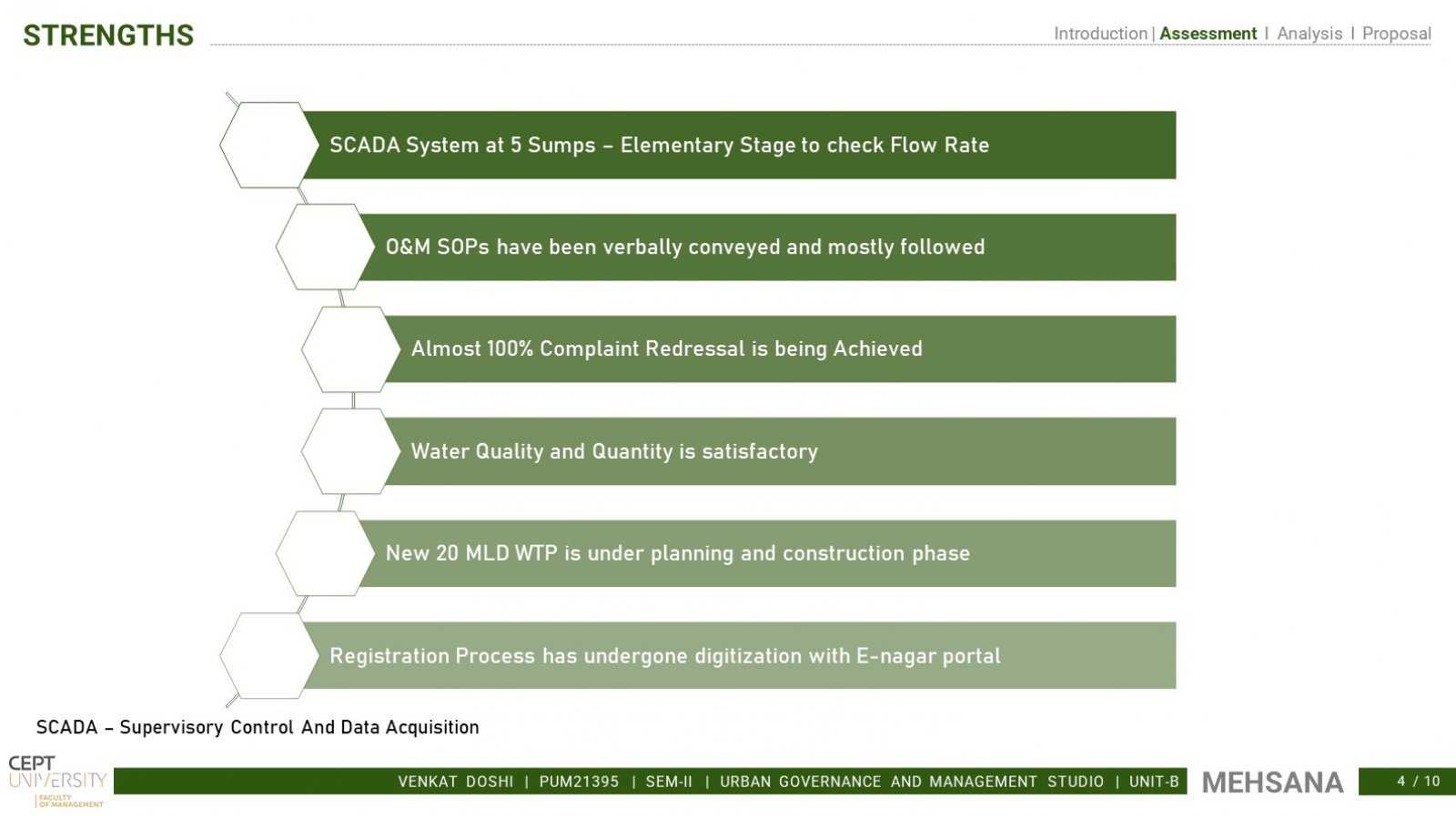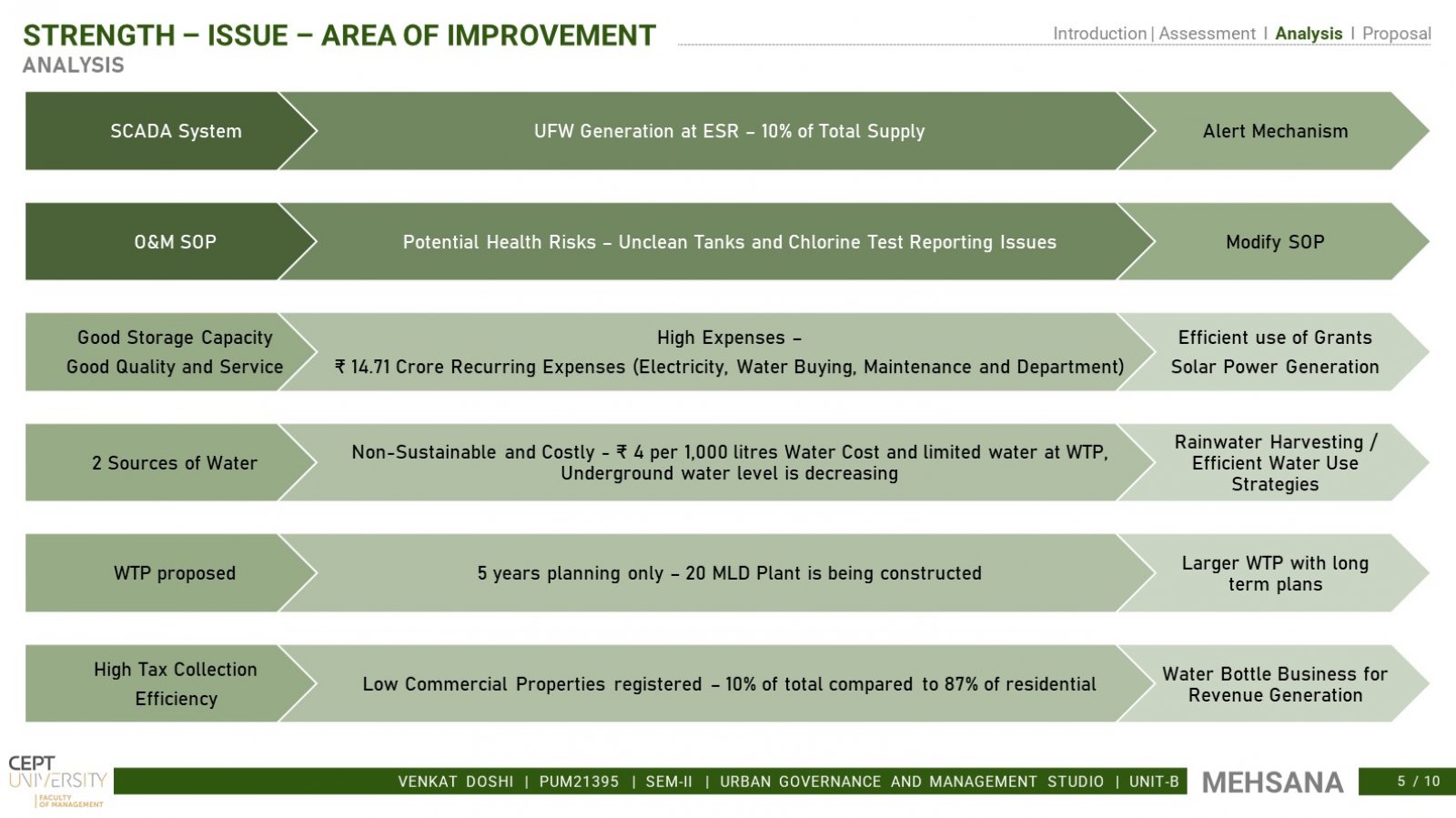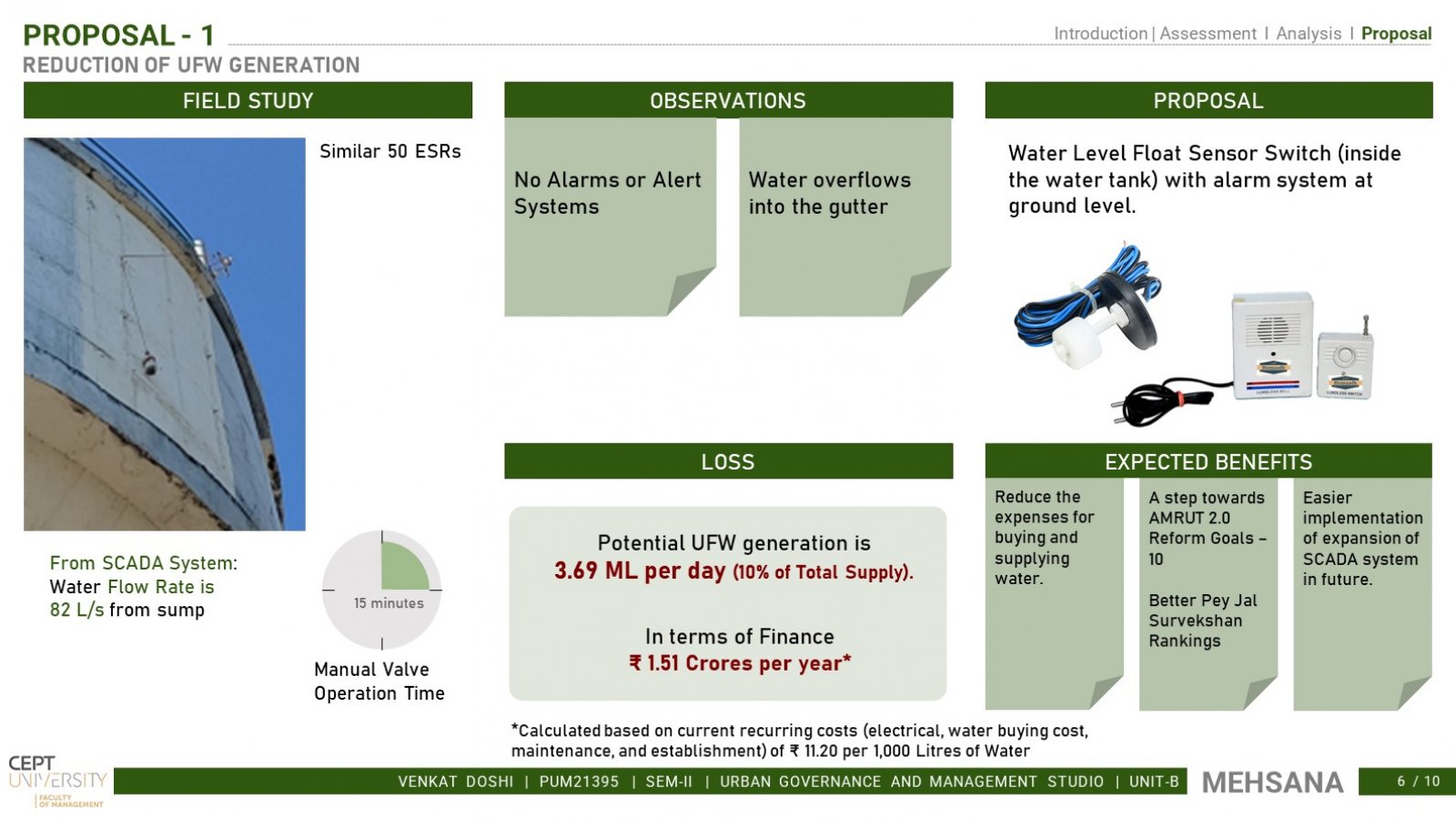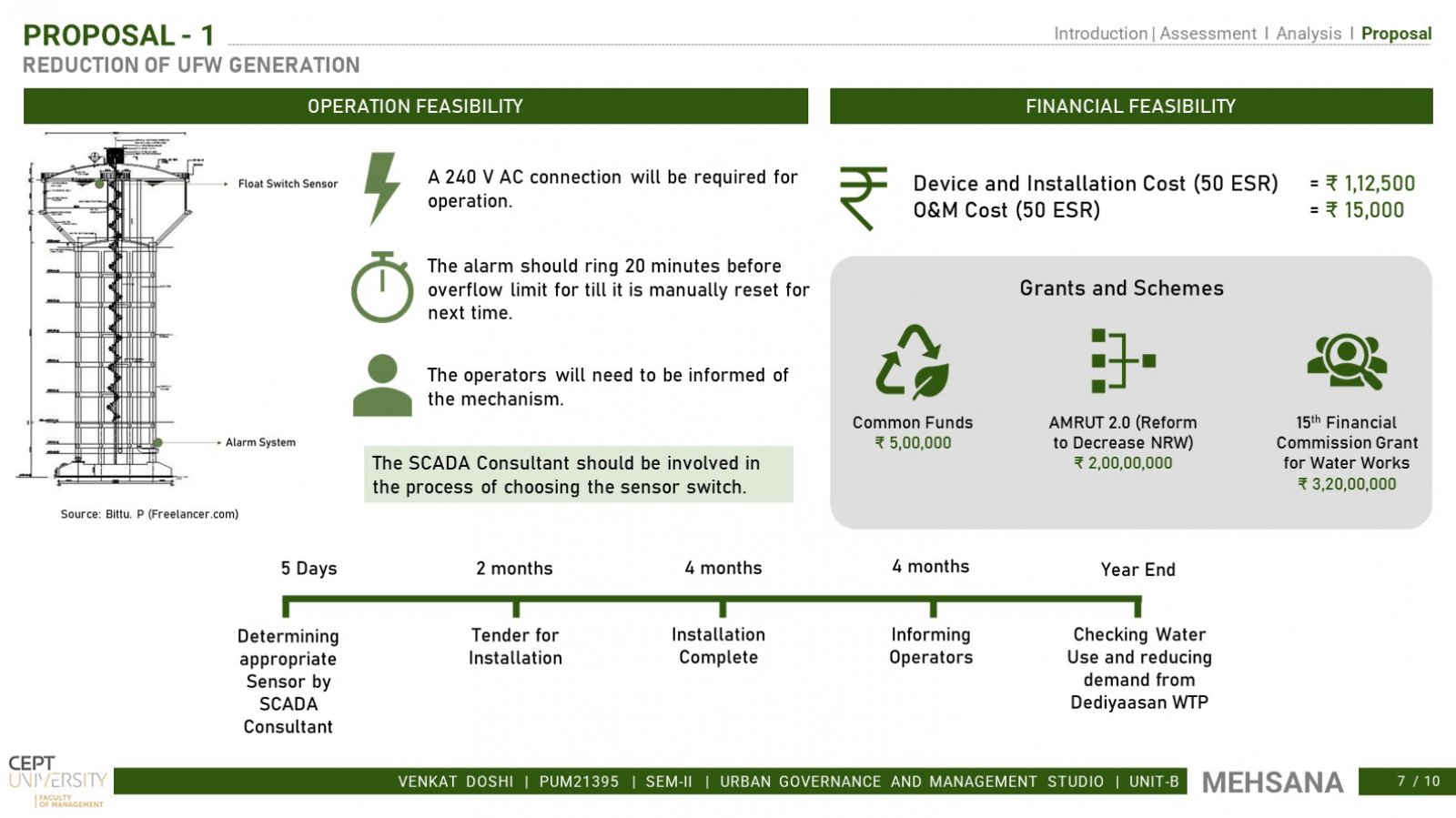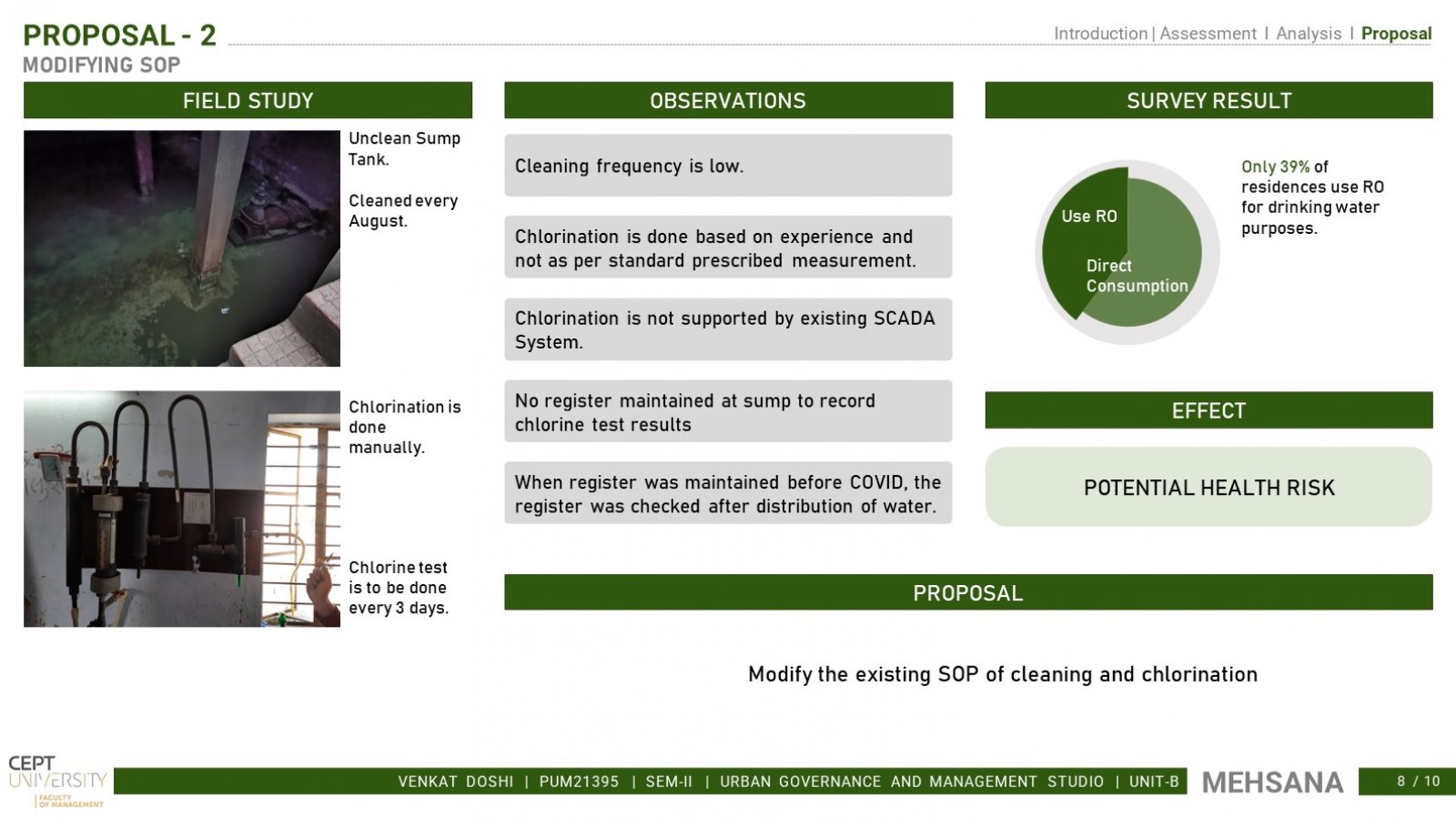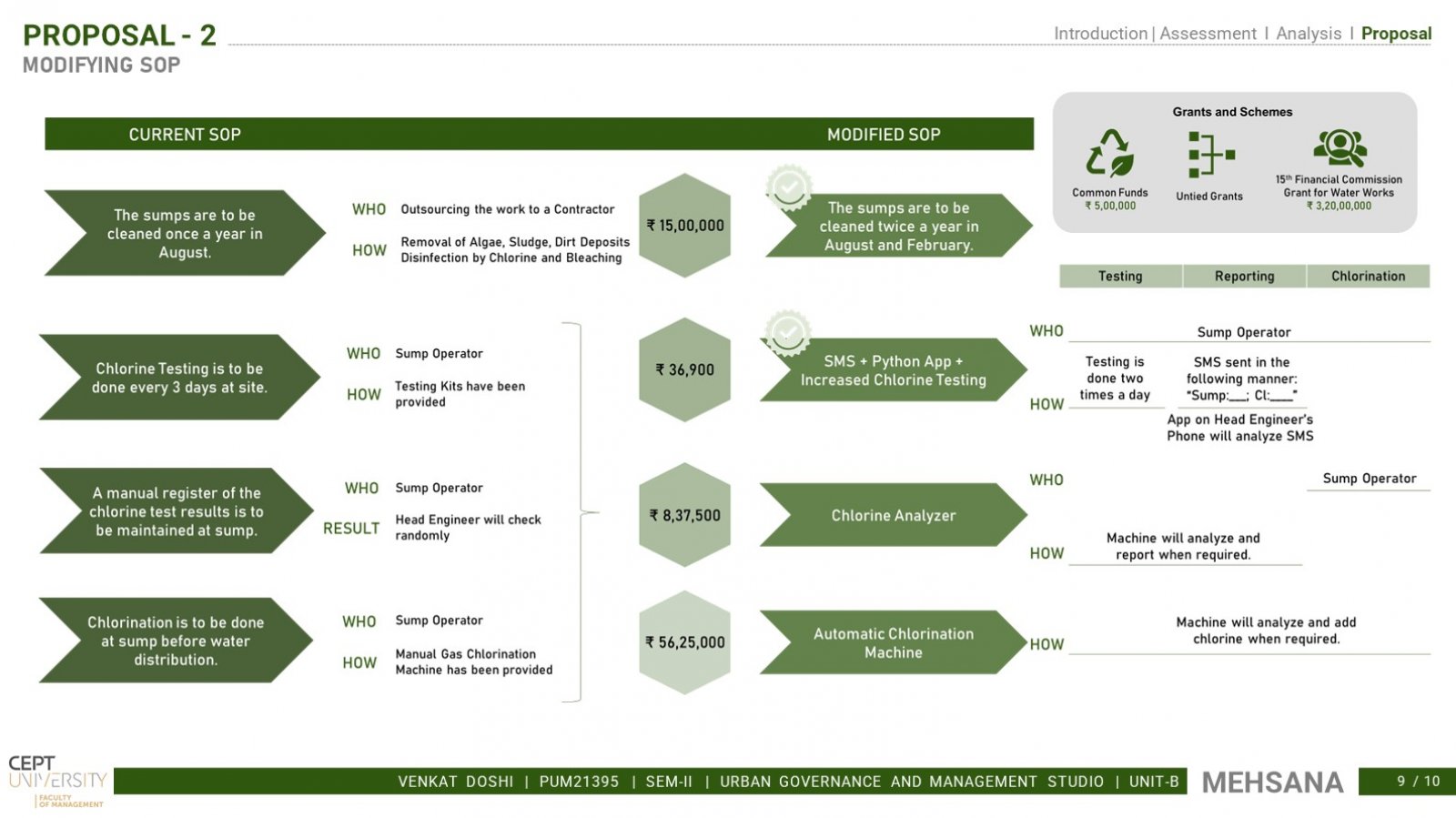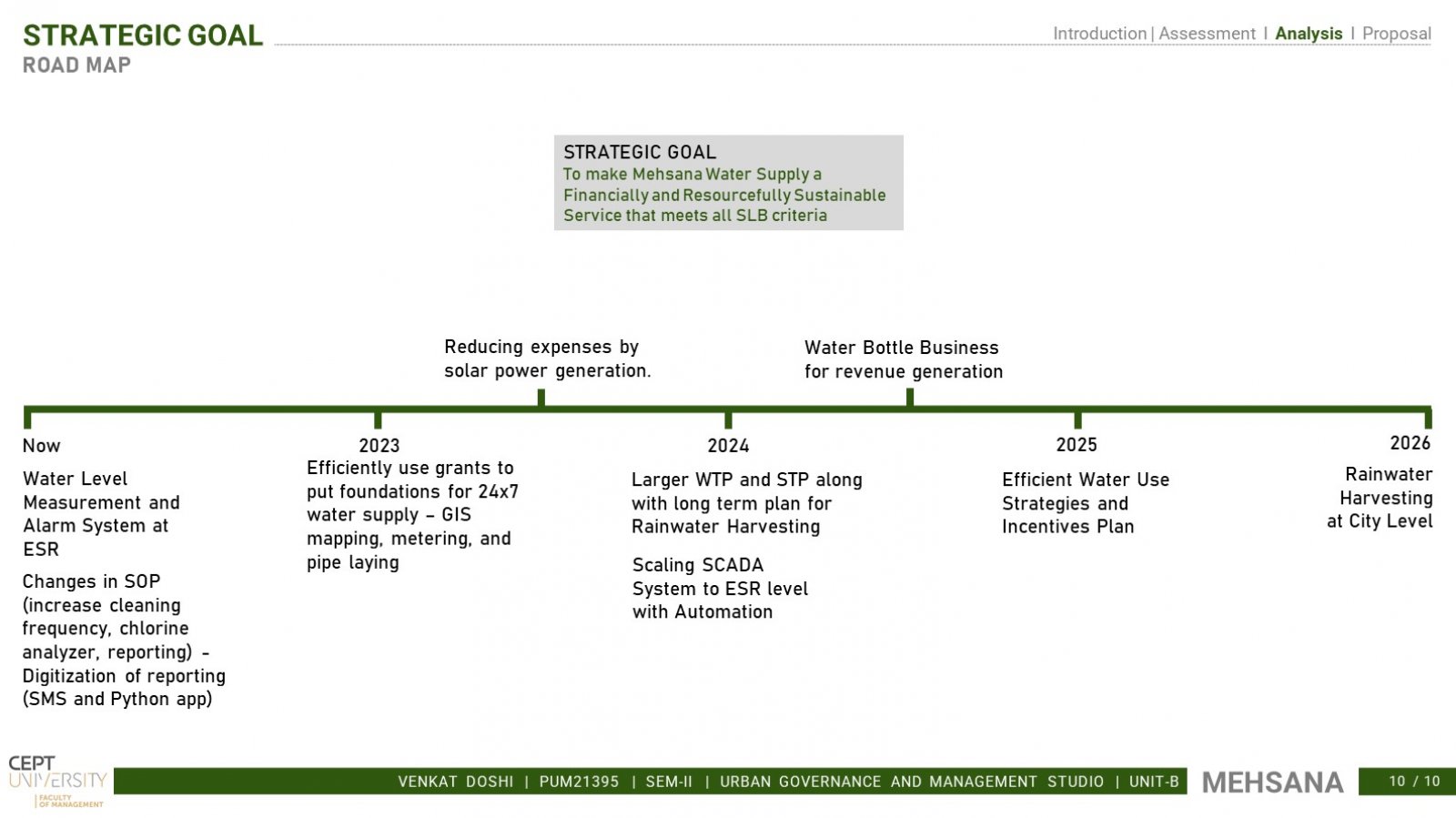Your browser is out-of-date!
For a richer surfing experience on our website, please update your browser. Update my browser now!
For a richer surfing experience on our website, please update your browser. Update my browser now!
Water Supply is one of the fundamental services for surviving and living. It is also a mandatory service to be provided by the Urban Local Bodies as per the 74th Amendment 12th Schedule. Mehsana has a projected population of 2,60,000 and requires about 36 MLD of water. The focus of the study was to understand the service from the Municipality's point of view, understand the difficulties faced, how they work, and how the national and state policies govern the development of a city.
Finally, proposals were given based on the study to improve the service.
